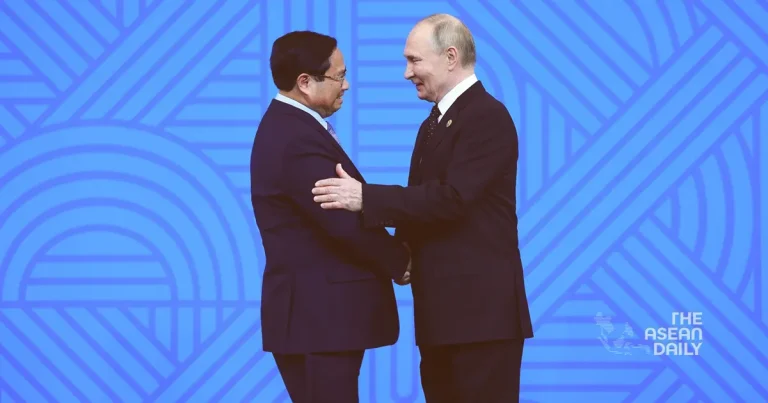24-10-2024 (MOSCOW) Russian President Vladimir Putin welcomed leaders from 36 nations and territories at a prestigious reception marking the commencement of the BRICS and BRICS Plus Leaders’ Conference, with Vietnamese Prime Minister Pham Minh Chinh among the distinguished attendees.
The summit, themed “BRICS and the Global South: Building a Better World Together”, has drawn unprecedented participation, including 22 high-level delegations led by heads of state. Notable attendees include the presidents of China, Laos, South Africa, Turkey, Venezuela, Uzbekistan, Belarus, Azerbaijan, Egypt, and the UAE, alongside UN Secretary-General and leaders of five other international organisations.
In his opening address, Putin highlighted the summit’s achievements, announcing the adoption of a joint statement that outlines the group’s strategic vision and assessment of global challenges. The Russian leader emphasised that the expanded conference, scheduled for October 24, would focus on strengthening collaboration between BRICS nations and the Global South, particularly in emerging sectors such as digital technology, environmental sustainability, and scientific innovation.
On the summit’s sidelines, Vietnamese Prime Minister Pham Minh Chinh engaged in several bilateral meetings with fellow leaders. In talks with Kazakh President Kassym-Jomart Tokayev, Chinh reaffirmed Kazakhstan’s significance as a key Vietnamese partner in Central Asia. Both leaders committed to enhancing bilateral cooperation, particularly in trade, aviation, and tourism.
During discussions with Turkmenistan’s President Serdar Berdimuhamedow, Vietnam expressed interest in deepening bilateral relations across various sectors. Berdimuhamedow acknowledged Vietnam’s regional importance and supported initiatives to strengthen economic ties between the two nations.
In a separate meeting with Ethiopian Prime Minister Abiy Ahmed, Chinh highlighted the historical parallels between both nations’ independence struggles. Ahmed expressed admiration for Vietnam’s economic progress and welcomed proposals for increased cooperation in agriculture, trade, and investment.




